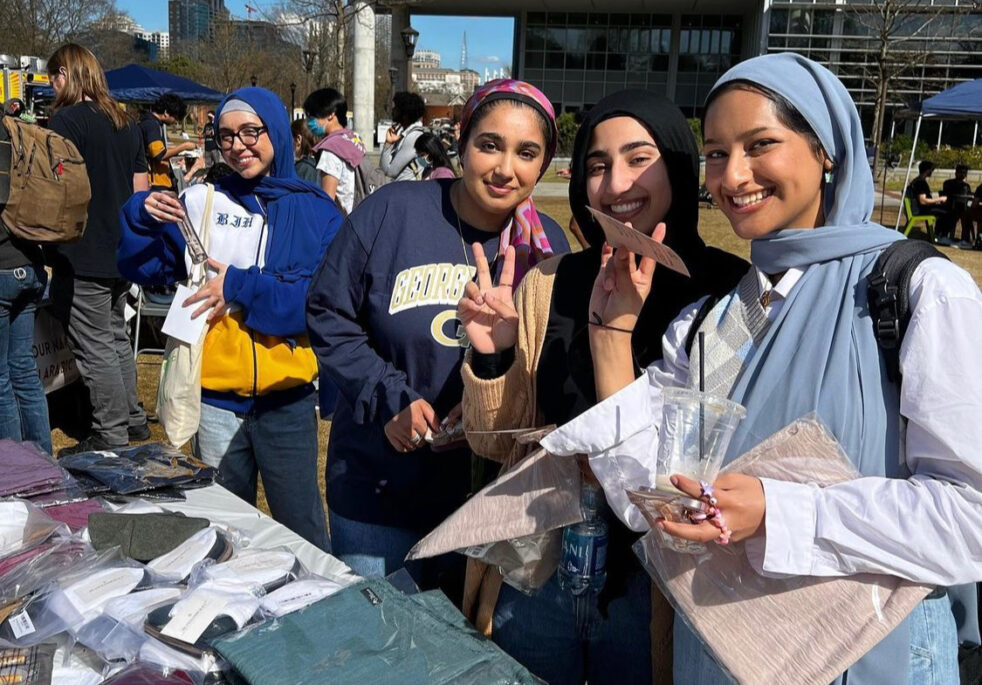Ramadan, the ninth month of the Muslim calendar, signifies the beginning of a month of fasting for more than two billion Muslims worldwide. Fasting is one of primary tenets of Islam, but the significance of Ramadan extends far beyond refraining from food and water during the daytime; Muslims use this month as a tool for self-improvement by engaging in charity, bettering their daily habits and forming a deeper spiritual connection to their faith.
Conventionally, daily fasts begin at sunrise following the fajr prayer and an early breakfast called suhoor and end with the sunrise prayer, maghrib. It is customary for Muslims across different cultures to begin their iftar meal with dates, following the practice of Prophet Muhammad. The conclusion of Ramadan is celebrated with a holiday known as Eid al-Fitr and many Muslim dominated countries combine cultural elements with their festivities, giving the holiday unique characteristics based on the country and culture. General themes surrounding Eid al-Fitr focus on families attending Eid prayers in their local mosques, visiting relatives, preparing elaborate meals and giving children small tokens like gifts or pocket money.
At the Institute, a multitude of Muslim students observe Ramadan anually. When asked about the significance of Ramandan in her personal life, Yara Seif, fourth-year CS, reflected, “Ramadan is a very exciting month for me because it is when I break my regular routine and fast from dawn to sunset for a month. Acts of worship typically increase during this month, such as reading more Quran as well as doing more voluntary prayers at the mosque. I always look forward to this blessed month of the year because it makes me feel so closely connected to all Muslims around the globe and gives me a strong sense of belonging.” Emphasizing Islam’s resolve to charity, Seif said, “I also believe that since we are so aware of how much food we consume, Ramadan allows me to become more cognizant of both myself and the state of people around the world. During this month, a majority of Muslims give charity, donate food to the needy, or spend more time doing kind acts of service.”
When asked whether they felt that the Tech community is inclusive of Muslim community members, a multitude of Muslim students voiced their appreciation of the culture of acceptance that the Institute fosters. Jude Hasan, second-year CHEM, spoke of the openness of Tech students and staff. “Our campus is an incredibly welcoming environment for all different types of people and we have been able to build a community that supports and encourages one another,” said Hasan.
She also spoke of the hardships that come with juggling academics with such a spiritually immersive month. “While Ramadan comes with its many benefits and space to grow personally, it can push you to your limits. Being a college student is already a challenge in and of itself, and finding the balance between excelling academically and growing spiritually can be tough, especially while fasting for nearly 14 hours of the day,” said Hasan.
Due to its dependence on the Islamic lunar calendar, Ramadan will last the entirety of April, with Eid al-Fitr expected to fall in the first week of May. With the spring semester winding down and the approach of final examinations, many students are experiencing high levels of stress and exhaustion, which can be further highlighted by the mental and physical demands of fasting. Recognizing that Ramadan can pose a special challenge for college students, organizations like the Muslim Student Association (MSA) and Pakistani Student Association (PSA) are striving to foster an inclusive community to support students during a challenging, yet fulfilling month.
The orgamizations encourage Muslim and non-Muslim students alike to learn more about the sacred month and its customs by hosting a few iftar events complete with meals and guest speakers over the course of April.
These events will not only educate students regarding the significance of Ramadan, but also be a safe space for Muslim students to gather and celebrate the unique community they have created at the Institute.
